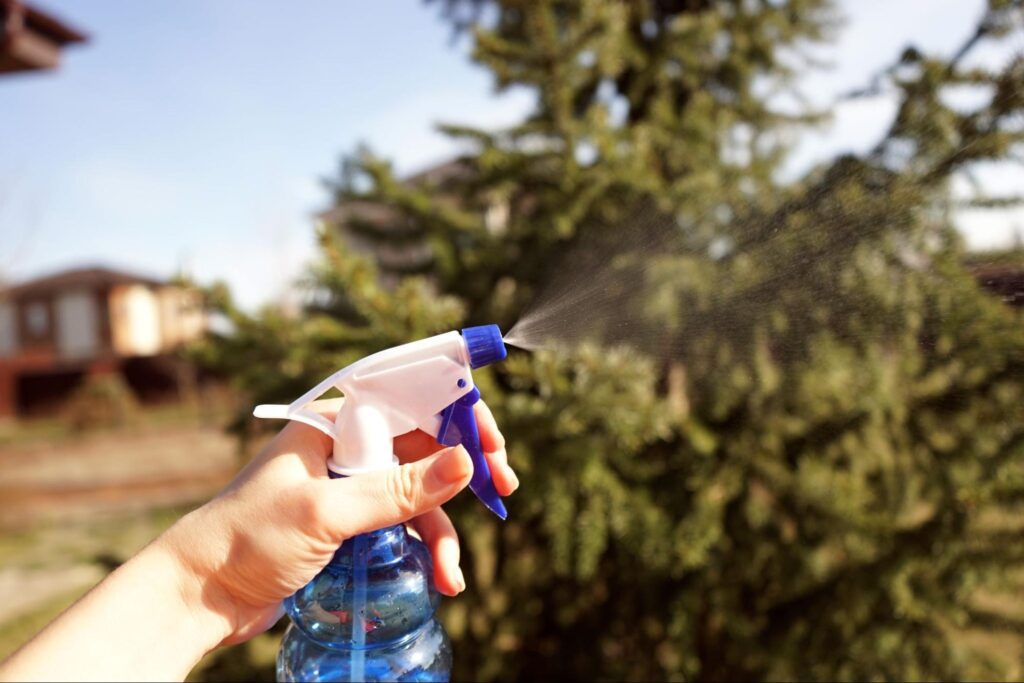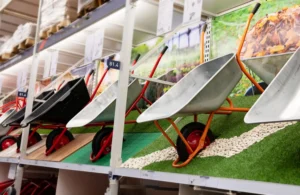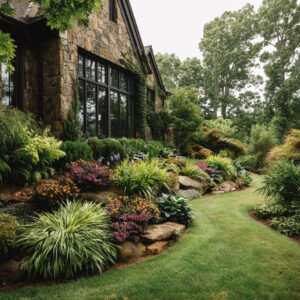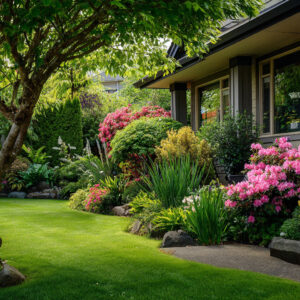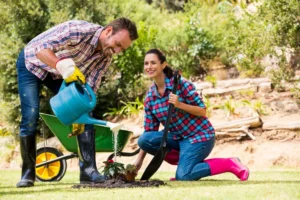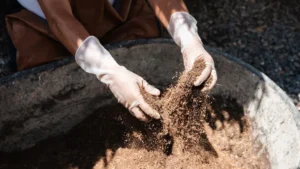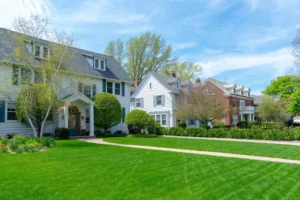Dawsonville’s warm-season grasses thrive due to soil and climate conditions that promote aggressive growth. Beneficial herbicides successfully combine seasonality with selective action to kill unwanted crabgrass, dandelions, and clover while protecting common turfgrasses, such as Zoysiagrass and Bermuda grass. In this publication, we will learn all about which herbicides are best for Dawsonville’s most common and persistent weeds, what herbicides are best for your grass type and safety, when are the best times to apply in the Georgia climate, and what are the benefits of having WeedPro manage your weeds for you. Understanding these will allow you to protect your turf and explore a tailored Weed Destroyer service from WeedPro.
Which Herbicides Work Best for Common Dawsonville Weeds?
Herbicides that are selective are designed to kill specific weeds and are a great option, as they are selective and will not damage the turf itself. There is an important distinction between pre-emergent and post-emergent herbicides, as niggling weeds can be prevented from appearing and treating those that occur through post-emergent applications.
What Are the Most Common Weeds in Dawsonville Lawns?
The most common weeds that can easily be found in Dawsonville lawns include crabgrass, dandelions, and clover. The reason for this is largely due to Dawsonville’s warm, humid springs, which provide ideal conditions for crabgrass germination and allow perennial broadleaf weeds, such as dandelion weeds, to take advantage of thin turf. This is combined with the compacted soil conditions that clover thrives in.
These weeds contribute to the uniformity of your lawn turf and compete for your water and nutrients.
- Crabgrass spreads low on the soil surface and limits the growth of grass seedlings in your lawn.
- Dandelion will grow a deep tap root, then produce a bright yellow flower that reseeds its weight.
- Clover sends above-ground runners and fills in bare areas, plus adds in nitrogen available for use.
These weeds are aggressive due to their growth cycles, which means that preventative and corrective measures are needed for a healthy lawn.
How Do Pre-Emergent Herbicides Prevent Dawsonville Weeds?
Pre-emergent herbicides prevent weed seed germination by establishing chemical barriers in the soil, which inhibit root establishment and help mitigate new crabgrass and annual weeds. Applying at the end of winter or in late winter will provide the best results, as it targets any summer annuals before they become visible.
When Should Post-Emergent Herbicides Be Used for Existing Weeds?
Post-emergent herbicides kill existing weeds by inhibiting cellular respiration/or cell division, and/or light-energy acquisition while the weeds are still green. This creates a quick brown-out of crabgrass or broadleaf weeds, such as dandelions, when applied in early summer around peak growth.
How Do You Choose the Right Herbicide for Your Dawsonville Lawn?
Herbicide application involves aligning the chemical active ingredient with grass compatibility and weed spectrum, which can be summarized as weed selectivity to minimize turf damage and achieve effective control.
What Role Does Grass Type Play in Herbicide Selection?
Grasses exhibit varying tolerances to herbicide active ingredients. For example, zoysia may tolerate applications of several post-emergent types, while fescue requires gentler types to promote turf health during broadleaf weed management. Knowing your grasses first cannot be overstated.
How Does Weed Type Influence Herbicide Choice?
Broadleaf weed requires a selective, water-soluble herbicide because the weed’s respiration and/or light will not harm the grass, while grassy weeds like crabgrass will be targeted with a post-emergent or pre-emergent graminicide. Fitting the chemical to the weed biology is the first step to productive success.
Eco-Friendly and Pet-Safe Herbicides
To ensure the best match between turf species and treatment chemistry, the table below outlines common Dawsonville grass varieties and the herbicide classes that preserve turf health:
| Grass Type | Recommended Herbicide Class | Rationale |
|---|---|---|
| Zoysia | Atrazine-based pre-emergent | Controls broadleaf weeds without scorching dense blades |
| Bermuda | Fluazifop-P-butyl | Targets grassy weeds while tolerating heat and traffic |
| Fescue | MCPA–Dicamba blend | Balances broadleaf control with cool-season resilience |
Customizing herbicide class to grass type preserves turf integrity and maximizes weed control.
When Is the Best Time to Apply Herbicides in Dawsonville?
Positioning herbicide applications in relation to local seasonal cycles enhances weed prevention and control by aligning activity with weed growth stages and soil conditions.
What Is the Optimal Season for Pre-Emergent Herbicide Application?
Late winter to early spring is the ideal season, when soil temperatures average around 55 °F. Pre-emergent herbicides are designed to reduce the germination of summer annual weeds, such as crabgrass. Speaking early, before germination occurs, pre-emergent herbicides prevent weeds from emerging.
How Should Post-Emergent Herbicides Be Timed for Maximum Effect?
Post-emergent herbicides should be applied either in early summer or early fall when weeds are actively growing, allowing them to be absorbed by the active weeds and causing wilting and minimal to no weed regrowth. These periods align with the peak metabolism in weeds.
How Does Local Climate Affect Herbicide Application in Dawsonville?
Due to Georgia’s humid subtropical climate, weed growth can occur quickly, and herbicides can be washed away; therefore, maximizing effectiveness and absorption will depend on planning applications prior to rain and when temperatures are stable to optimize effectiveness and absorption. Monitoring the weather forecast will provide additional support for better results.
What Are the Benefits of Professional Weed Control Services in Dawsonville?
Professional weed control services utilize local expertise, precision application methods, and a customized treatment plan to achieve the best, most environmentally friendly results.
How Does WeedPro Tailor Herbicide Treatments to Dawsonville Lawns?
WeedPro determines the soil type, grass type, and existing weed pressure to create customized herbicide blends through the Weed Eliminator Program, enabling complete control and ensuring lawn safety. These customized plans will improve the health of the turf over time.
Why Is Professional Application More Effective Than DIY Herbicide Use?
Being calibrated and trained on the tools of the trade [spray equipment], licensed professionals are able to make sure that application rates are spot on, ensuring that efficiency of the herbicide is not wasted from overuse or drift, as well as maintaining consistent coverage to improve kill rates and avoid damaging desirable turf. A professional will have the experience in terms of timing, including when to come back to monitor efficacy, all of which can have a direct impact on effectiveness.
How Can You Identify and Manage Weeds in Dawsonville Lawns?
Identifying weeds will enable the application of best practices in weed management, improving the efficacy of herbicides and reducing weed infestations over time.
What Are the Key Features to Identify Common Dawsonville Weeds?
The shape of the leaf, growth pattern, flower structure, and root type can all be used to identify crabgrass (characterized by its spreading blade shape), dandelion (recognized by its rosette leaf shape and yellow flowers), and clover (identified by its three-leaf stem). Knowing these key identifying traits will help lead to effective herbicide treatments.
How Do Cultural Practices Support Herbicide Weed Control?
Cultural practices such as mowing, irrigation, and fertilizing are all important practices for building turf density. Turf density limits the availability of light and nutrients to weeds within the selective herbicide, thereby improving the results. A lot of density will allow your herbicide to do its best job of suppressing weeds, too, as a healthy lawn will always provide the best defense for turf against weed invasions.
Implement these recommended cultural practices to improve your turf before starting herbicide applications:
- Mow consistently at the recommended 3″ height to shade out the weed seedlings.
- Irrigate deeply and infrequently; this will produce the longest roots.
- Fertilize according to the time of year and what type of grass you have to promote what will eventually be a robust and vigorous grass.
These best practices will enhance the efficacy of the chemical, reduce weed pressure over time, and help establish the lawn for precision controls, as mentioned above.
Target Weeds Effectively and Safely
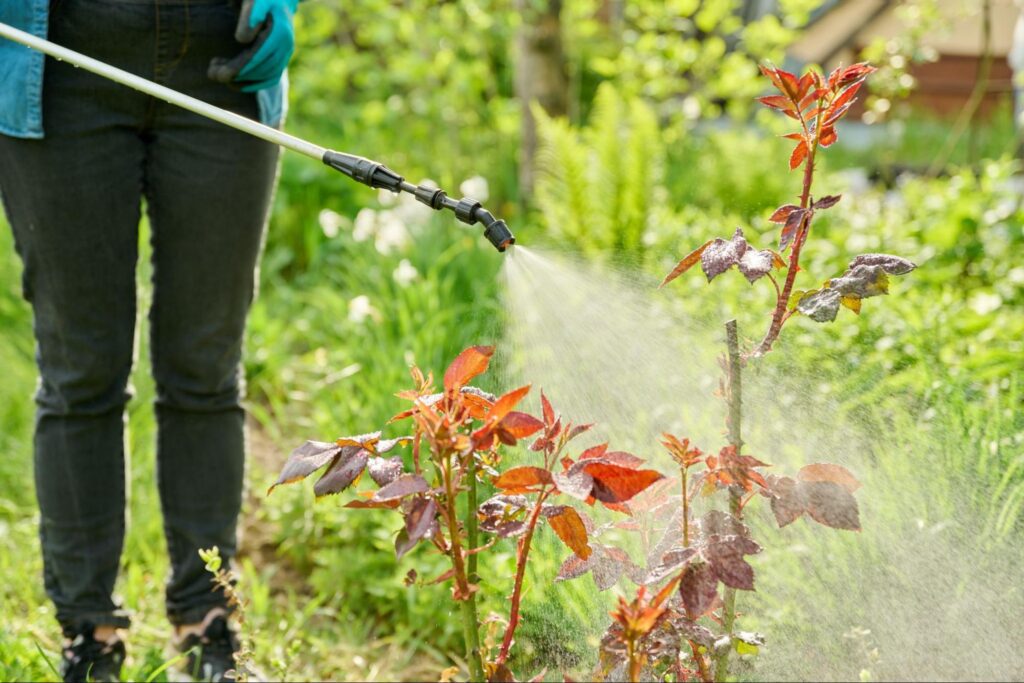
Weeds take nutrients, water, and light from your lawn. Choosing the correct products in the application process makes all the difference in getting your extra crop to use. Dawsonville’s weather and soils have all played a role in herbicides’ performance over time, as timing is key, along with proper application. Selective herbicides are explicitly applied for certain weed classifications without damaging your grass, and pre-emergent herbicides work before a weed grows. As long as you use the correct product, your lawn will be weed-free. If you can think strategically from the beginning to the end, you will achieve better weed control and overall success than by choosing a quick-fix or temporary solution.
Contact WeedPro today for expert weed control services with the best herbicides for your Dawsonville lawn.
FAQs
What’s the difference between selective and non-selective herbicides?
Selective herbicides target weeds without damaging grass, while non-selective herbicides kill everything they touch.
Can herbicides be used year-round?
No, herbicides are most effective during specific growth cycles—spring and fall are common times.
Do herbicides harm beneficial insects?
Some can, but careful selection and application minimize risks to pollinators and soil health.
Take Control of Lawn Pests
Weeds aren’t the only lawn invader. Continue with our next article: “Top Mole Control Solutions for Your Dunwoody Lawn: Effective Mole Removal and Professional Extermination.”

